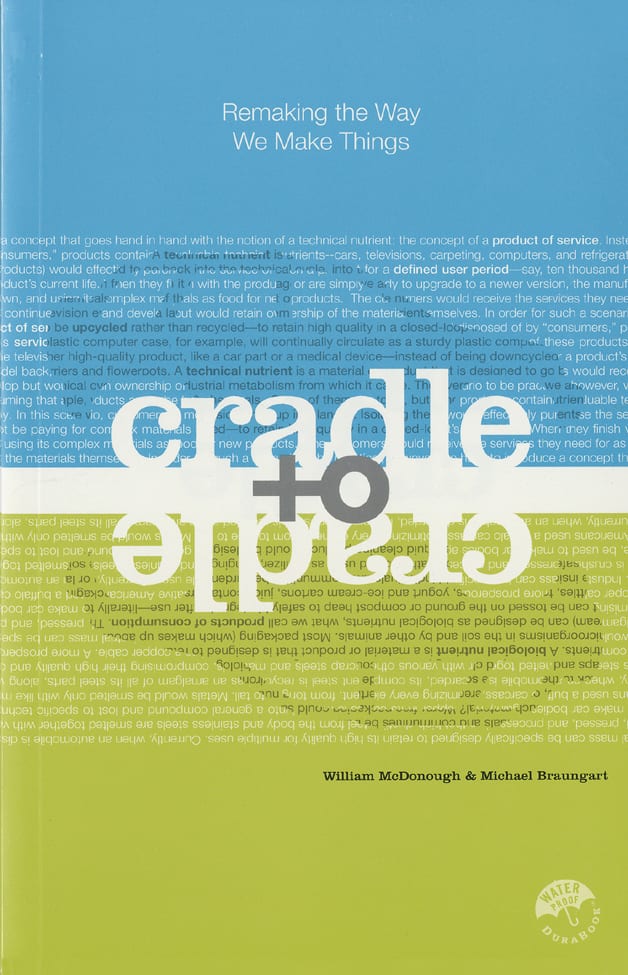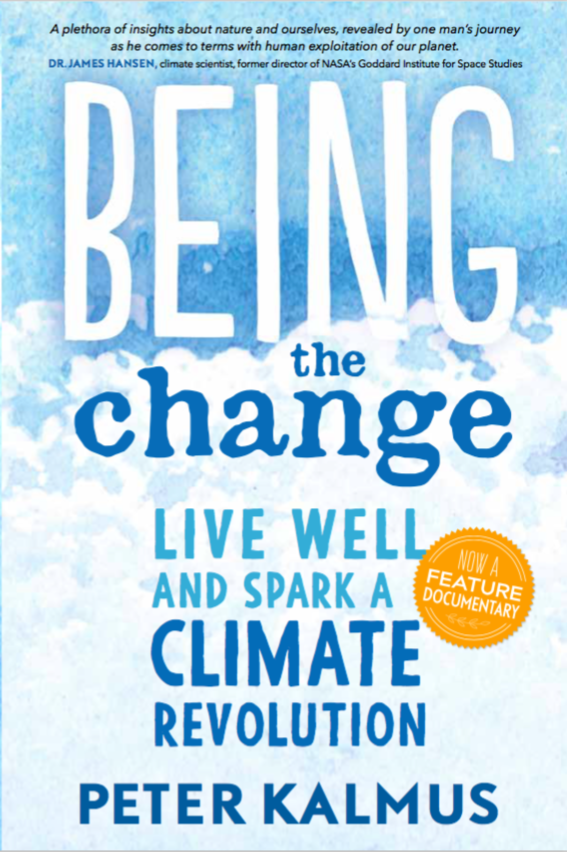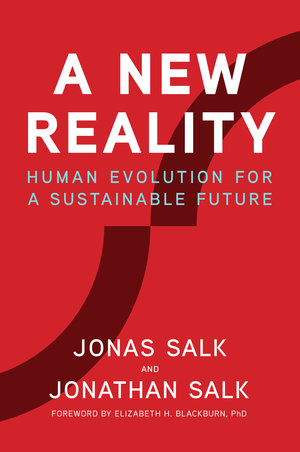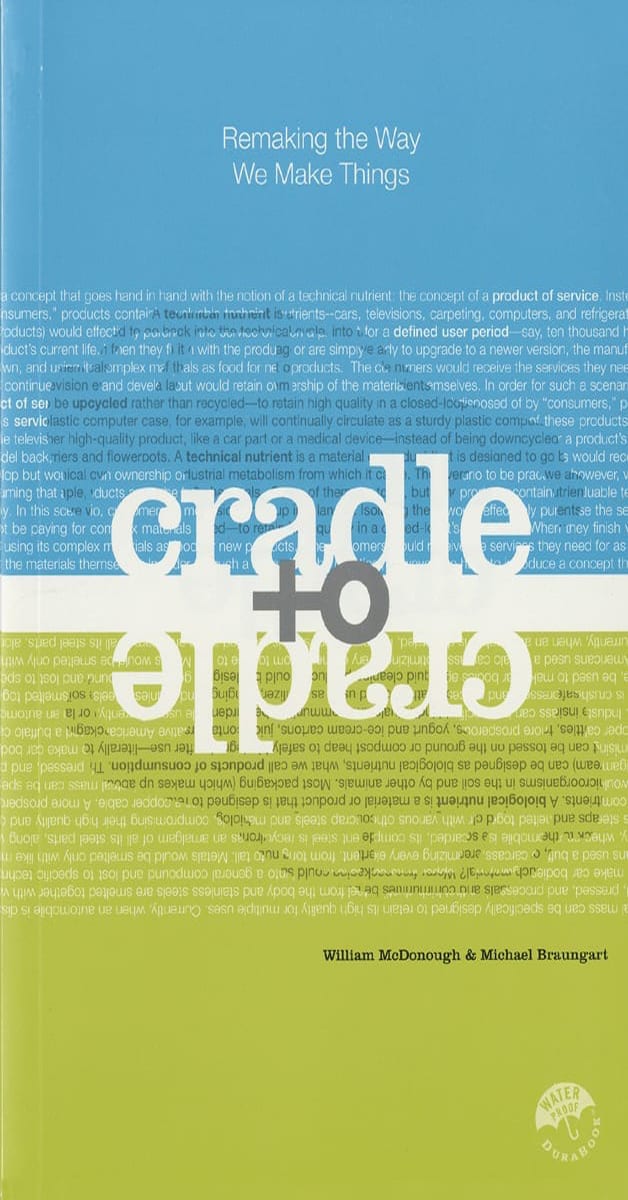Are you looking for the right books to read about sustainability? In this article, we will be giving you some of the best books on sustainability you can add to your reading list and in your library.
We are currently experiencing climate change, and many have happened because of this. Many forest fires have happened around the world, then there came typhoons, uncontrollable floods, and many other calamities. Our environment is not the only thing that drastically changed. Different economies changed as well to cope up with the changes we are facing.
You want to do something to help in this change, but the question is, “HOW?”
Best Books on Sustainability To Add To Your Eco Reading List
Here are some of the best books on sustainability to feed us with information about what is happening and what we can do about it.
Deep Economy: The Wealth of Communities and the Durable Future

In this powerful and provocative manifesto, Bill McKibben offers the biggest challenge in a generation to the prevailing view of our economy. For the first time in human history, he observes, “more” is no longer synonymous with “better”—indeed, for many of us, they have become almost opposites. McKibben puts forward a new way to think about the things we buy, the food we eat, the energy we use, and the money that pays for it all. Our purchases, he says, need not be at odds with the things we truly value.
McKibben’s animating idea is that we need to move beyond “growth” as the paramount economic ideal and pursue prosperity in a more local direction, with cities, suburbs, and regions producing more of their food, generating more of their energy, and even creating more of their own culture and entertainment. He shows this concept blossoming around the world with striking results, from the burgeoning economies of India and China to the more mature societies of Europe and New England. For those who worry about environmental threats, he offers a route out of the worst of those problems; for those who wonder if there isn’t something more to life than buying, he provides the insight to think about one’s life as an individual and as a member of a larger community.
McKibben offers a realistic, if challenging, scenario for a hopeful future. Deep Economy makes the compelling case that the more we nurture the essential humanity of our economy, the more we will recapture our own.
Cradle to Cradle: Remaking the Way We Make Things

“Reduce, reuse, recycle” urge environmentalists; in other words, do more with less to minimize damage. But as this provocative, visionary book argues, this approach perpetuates a one-way, “cradle to grave” manufacturing model that dates to the Industrial Revolution and casts off as much as 90 percent of the materials it uses as waste, much of it toxic. Why not challenge the notion that human industry must inevitably damage the natural world?
In fact, why not take nature itself as our model? A tree produces thousands of blossoms to create another tree, yet we do not consider its abundance wasteful but safe, beautiful, and highly effective; hence, “waste equals food” is the first principle the book sets forth. Products might be designed so that, after their useful life, they provide nourishment for something new-either as “biological nutrients” that safely re-enter the environment or as “technical nutrients” that circulate within closed-loop industrial cycles, without being “downcycled” into low-grade uses (as most “recyclables” now are).
Elaborating their principles from experience (re)designing everything from carpeting to corporate campuses, William McDonough and Michael Braungart make an exciting and viable case for change.
Natural Capital: Valuing the Planet

Natural capital is what nature provides to us for free. Renewables—like species—keep on coming, provided we do not drive them towards extinction. Non-renewables—like oil and gas—can only be used once. Together, they are the foundation that ensures our survival and well-being, and the basis of all economic activity. In the face of the global, local, and national destruction of biodiversity and ecosystems, economist Dieter Helm here offers a crucial set of strategies for establishing a natural capital policy that is balanced, economically sustainable, and politically viable.
Helm shows why the commonly held view that environmental protection poses obstacles to economic progress is false, and he explains why the environment must be at the very core of economic planning. He presents the first real attempt to calibrate, measure, and value natural capital from an economic perspective and goes on to outline a stable new framework for sustainable growth. Bristling with ideas of immediate global relevance, Helm’s book shifts the parameters of the current environmental debate. As inspiring as his trailblazing The Carbon Crunch, this volume will be essential reading for anyone concerned with reversing the headlong destruction of our environment.
Being the Change: Live Well and Spark a Climate Revolution

We all want to be happy. Yet as we consume ever more in a frantic bid for happiness, global warming worsens.
Alarmed by drastic changes now occurring in the Earth’s climate systems, the author, a climate scientist, and suburban father of two, embarked on a journey to change his life and the world. He began by bicycling, growing food, meditating, and making other simple, fulfilling changes. Ultimately, he slashed his climate impact to under a tenth of the US average and became happier in the process.
Being the Change explores the connections between our daily actions and our collective predicament. It merges science, spirituality, and practical action to develop a satisfying and appropriate response to global warming.
Part one exposes our interconnected predicament: overpopulation, global warming, industrial agriculture, growth-addicted economics, a sold-out political system, and a mindset of separation from nature. It also includes a readable but authoritative overview of climate science. Part two offers a response at once obvious and unprecedented: mindfully opting out of this broken system and aligning our daily lives with the biosphere.
The core message is deeply optimistic: living without fossil fuels is not only possible, but it can also be better.
Peter Kalmus is an atmospheric scientist at Caltech / Jet Propulsion Laboratory with a Ph.D. in physics from Columbia University. He lives in suburban Altadena, California with his wife and two children on 1/10th the fossil fuels of the average American. Peter speaks purely on his behalf, not on behalf of NASA or Jet Propulsion Laboratory.
Cultural Heritage Tourism: Five Steps for Success and Sustainability

Every place has a story to tell, often found in historic sites or cultural traditions of the people who settled or currently live in a community, city, region, or state. When these stories and places are shared with visitors, this activity becomes what is known as cultural heritage tourism. Success and sustainability in this growing industry segment require careful planning and adequate resources. Cultural Heritage Tourism: Five Steps for Success and Sustainability provides detailed instruction through a proven five-step process to help planners, managers, and community leaders attract visitors and their spending to your cultural heritage site, attraction, event, or destination. Learn how to assess, plan for, develop, market, fund, manage, and measure cultural heritage for growth and sustainability. Refer to the best practices and case studies from across the country as examples for replication and reference. Use the sample documents and resource lists to jumpstart your cultural heritage tourism program and monitor and measure the efforts. This book walks you through every step, from inception to evaluation.
The Significance of Sustainability

Kyle Michaud explores the necessary changes society needs to make, to preserve and protect the planet. He discusses sustainability as it applies to businesses, products, and everyday life. Michaud gives reasonable suggestions for simple adjustments that will lead to a healthier world. This book will assist consumers in choosing safe and environmentally friendly items and understanding the advantages of living green.
Sustainable Growth and Profits
Innovative concepts are like living organisms-they require energy and resources to survive. Innovation can only thrive when it emerges from an organization committed to the growth and sustainability of the enterprise. Instead of thinking of cultivating innovation in isolation, organizations are more successful when they generate a cluster of innovations, manage them side-by-side, and evaluate how they interact as a portfolio of initiatives. Volume 5, the final volume in this detailed reference series, tackles the changing role of strategy, leadership, transformation, sustainability, and how to manage a balanced portfolio of strategic initiatives.
Over the past two decades, Innovation360 founder Magnus Penker has counseled countless enterprises on making innovation profitable, executing digitization, and the global implications of new business models. He was recognized as “CEO of the Year” in 2016 for his achievements in Innovation and Growth Strategies. While devoting time to helping others, he successfully launched 10 startups and turned around more than 30 businesses throughout the continent of Europe. Penker and his colleagues bring their collective wisdom and contemporary examples from well-known corporations to this thought-provoking and game-changing approach to innovation.
“In our degree program, we aim to give leaders the tools and know-how to innovate and transform their companies & industries. This book is an excellent resource to understand the external influences and internal abilities to do so.” – Melissa Rancourt, Academic Director of Global Executive Master Degree on Strategic Design & Management at Parsons School of Design.
“This book discusses the critical role that people and organizations have in making innovation happen. The text is nicely organized, and it aligns well with the emerging ISO/CD 50501 standard/guidance for innovation management.” – John Saiz, Principal Industrial Fellow at the Univ. of Cambridge and former CTO of NASA JSC.
Global Sustainability: 21 Leading CEOs Show How to Do Well by Doing Good

Mark Lefko’s Global Sustainability examines this vital subject from the perspective of today’s most influential business leaders. Global Sustainability means ensuring that everyone on Earth has what they need to survive and thrive. But for this to be feasible—and sustainable—businesses need to be able to turn a profit. Lefko shares profound insights gleaned from his one-on-one interviews with business leaders of all stripes, from the CEOs of Global Multinationals, Fortune 50 giants to visionaries leading plucky startups. Learn from these CEOs and others: Sir Richard Branson-Virgin Group, Paul Polman-Unilever, Ann Sherry-Carnival Australia, Feike Sijbesma-DSM, David MacLennan-Cargill, Marc Benioff-Salesforce. In exclusive interviews, these 21 leading CEOs explain:
· How the Global Sustainability movement is shaping the growth of the most profitable companies around the world
· How your company can participate fully in this movement—and profit from your participation
· How your guiding ethical principles shape your company’s identity … and why they’re vital to your survival
Global Sustainability is about more than just doing good; it’s about doing well by doing good.
Sustainable World Sourcebook: Critical Issues, Inspiring Solutions, Resources for Action
As we come to understand the urgency of our multiple global crises, we become motivated to get involved, to make use of our collective wisdom and our capacity to work for solutions in the community. The Sourcebook is designed to support readers in finding pathways for effective individual and group action. It cuts through the glut of information, providing a clear, concise overview of the most important issues and aspects of sustainability that everyone needs to know. And it’s packed with successful models, inspiring examples, and actionable solutions.
A new reality: Human Evolution for a Sustainable Future

A New Reality: Human Evolution for a Sustainable Future provides a startling, fresh new message of understanding, perspective, and hope for today’s tense, rapid-fire, kaleidoscopically changing world.
A New Reality: Human Evolution for a Sustainable Future provides a startling, fresh new message of understanding, perspective, and hope for today’s tense, rapid-fire, kaleidoscopically changing world. Drawn from the writings of visionary scientist Jonas Salk, who developed the polio vaccine, extended and developed by his son Jonathan, the message of the book explodes from the past and sheds light on tensions that besiege us and the currents of discord that are raging as these words are written. More importantly, it indicates a way forward out of our current situation.
Written by a world-famous doctor and folk hero, based on population data, rich in visual imagery, elegantly designed, and clearly written, A New Reality is unique in the marketplace. Readable in one or two sittings, it is accessible to the general reader while at the same time being of essential value to policymakers and academics. Its brevity and simplicity of design belie the importance and sophistication of its message.
“We are at a point in the course of human social evolution when the demands of survival converge with the higher ideals of humankind and the well-being and flourishing of human society. It is up to us to see that we navigate this transition, adapting to and emerging in a new reality.” —A New Reality
Our country is divided and polarized. Terrorism is a major threat throughout much of the world. Mass migrations are causing national and international tension. Population growth continues to increase, especially in the developing regions of the world. Controversy rages as to the use of fossil fuels versus the development of alternative forms of energy. Disagreement continues about climate change. Opposing currents of opinion collide as to how much we should help other areas in the world and how much to help ourselves. Basic values conflict.
More than 40 years ago, Jonas Salk understood that we are at a unique moment in the history of the human species. After centuries of increase, population growth has begun to slow and is trending toward equilibrium. This change is accompanied by an equally significant change in human values—a shift from those based on unlimited availability of resources, unremitting growth, excess, independence, competition, and short-term thinking to those based on limits, equilibrium, balance, interdependence, cooperation, and long-term thinking. This momentous transition is the source of far-reaching tension and conflict.
The way through this difficult era is to understand its basis and to focus on new values that will be of the greatest benefit to humankind. There is an urgency, however, and failure to adapt will result in disaster both for humanity and for the planet as a whole.
A New Reality delivers a message of both caution and hope. Readers across the social and political spectrum will find it a reasoned and balanced counterpoint to current social and political trends. Its elegant design and long-range perspective will appeal to general readers, policymakers, millennials, baby boomers, teachers, and students, filling a need in the marketplace for a work of positivity and wisdom in otherwise bleak times.
Conclusion
These are just a few of the books that talk about sustainability. Each book is packed with expert information and advice on how to navigate our changing world. Get inspired to take a stand and push for societal changes towards a more sustainable future.
More than just reading books, go and shift to a sustainable lifestyle. Go zero waste. Consume less. Live everyday with the principle that everything you do affects nature. And don’t forget to hold companies and institutions accountable for their role in environmental protection. This includes calling out governments and agencies that fail to protect the welfare of wildlife and the environment in their territories. Leave nothing to waste, even your votes.




